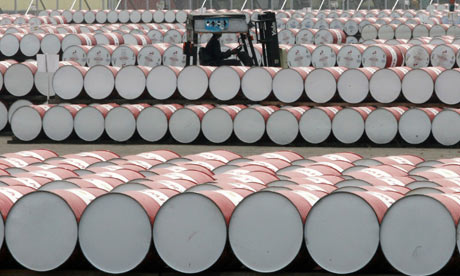A senior banking source told Daily News Egypt that the Central Bank of Egypt (CBE) is considering obligating banks to not accept foreign currency from anonymous sources, whether in deposits or import operations. This, however, does not apply to foreign currency sold at banks.
Bankers told Daily News Egypt that once this move is imposed, clients will have to show proof of source of hard cash, especially US dollars, at the time of deposits or opening letters of credits.
The move is aimed to lay siege to the informal currency market and curb demand on the dollar and foreign currencies. Customers who bought US dollars from the informal market will be unable to prove their source, unless obtained from foreign exchange bureaus with receipts, or if the cash was transferred from abroad through the banking sector, in addition to legally-proved sources.
On 9 March, the CBE waived the cap previously imposed on foreign cash deposits at banks from individuals and companies that import basic commodities.
The maximum monthly deposit cap was $10,000 for individuals and $250,000 for companies, except for exporting companies, of which the cap stood at $1m.
At the time of adoption of this resolution, the CBE stressed it aimed to secure the availability of goods and basic commodities in the Egyptian market, as well as stimulate the flow of foreign trade and ease banking transactions for companies that deal in the field of basic goods and products to support the sectors of industry and commerce.
Yet, this decision stirred demand on the US dollar on the informal market, which hiked its price to record highs and increased speculations.
The greenback was changing hands this week at EGP 18.25 per $1, before it fell to EGP 16.5 for sale amid lack of buying.
“The new move by the CBE is part of a procedures package coordinated between the CBE and the government,” said one source, adding that the package also includes another decision by the Federation of the Chambers of Commerce (FEDCOC) to suspend import operations and limit them to basic goods only for three months, in order to alleviate the demand on the scarce US dollars.
Moreover, the sources noted that the CBE is currently penning the regulations for its latest move, where officials are currently discussing whether disclosure of hard cash sources will be dependent on the sum or for any amounts, as well as rules for dealing with depositors and whether or not they will be handled the same way as importers.
All controls are scheduled to be completed within days, according to the sources. The decision will be imposed immediately after.
The sources stressed that dollar owners will no longer be able to deposit the cash at banks or use it in trade, leaving the sole option to change it to Egyptian pounds. “Otherwise, they will face huge losses, especially those who bought it at high prices.”
The market has been awaiting a strong move by the CBE to control the exchange rate. The mechanism of the move, however, remains the secret of the CBE Governor and the very few members of the government and political leadership.
A source said that the government will benefit if the CBE’s move is sudden, as it would impact currency speculators.
Furthermore, the source said that whether move-to-be is a devaluation and a full float, it must be accompanied with a special tender to sell US dollars to banks, so they close their open currency positions.
However, a treasury sector head at a foreign bank operating in Egypt, ruled out such a tender in the near future, saying that the CBE is working to maintain its foreign exchange reserves until the signing of the loan from the International Monetary Fund (IMF).
The CBE is set to announce its foreign exchange reserves until the end of October within a few days. The last level stood at $19.6bn at the end of September.
Tarek Amer, the CBE governor, said in earlier statements that the goal is to reach foreign exchange reserves of $25bn at the end of the year.
Government officials had said that the government has successfully secured 60% of the loans package, amounting to $6bn required by the IMF. Sources of the loans, however, have not been disclosed.
The treasury head said that Egypt could be closing on completing the package agreed on, possibly completing all the pieces of the $2.7bn is included, which is the amount expected for a foreign exchange trade between Egypt and China. This would put Egypt just a few steps behind obtaining the IMF loan final approval, pending moves on foreign exchange rate and fuel subsidies.




